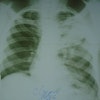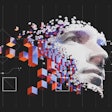
Artificial intelligence (AI) in radiology will enable researchers and radiologists to detect previously unseen information in medical images and better inform clinical decision-making via computer-assisted reporting, according to a new white paper on AI in radiology from the Canadian Association of Radiologists (CAR).
AI, for example, can pick up on subtle patterns in medical images that are beyond the threshold of human detection. By enabling computer-assisted reporting, AI can also decrease unnecessary variation in radiology reports, according to the white paper.
"Over the next decade, AI in radiology will significantly improve the quality, value, and depth of radiology's contribution to patient care and population health," said Dr. An Tang of the University of Montreal and chair of the CAR Artificial Intelligence Advisory Group in a statement. "The radiological community should prepare for automation of certain image interpretation tasks that will transform patient care in a positive way."
CAR President Dr. Emil Lee noted that there will be a stronger focus on health informatics and computer science in radiology curriculums as additional research is conducted on AI and the technology moves into the implementation phase. The association also believes that it's important to involve patients, radiologists, physicians, imaging technologists, hospital administrators, regulatory bodies, and industry and academic partners in the implementation of AI in radiology.
Furthermore, the group is encouraging the Canadian government to take an active role in setting standards for AI and addressing the technology's regulatory and legal issues.
"A modest investment from government in AI research will have a significant gain in improving patient outcomes and ultimately make medical imaging more accessible for Canadians," Lee said.
The white paper can be found here.




















